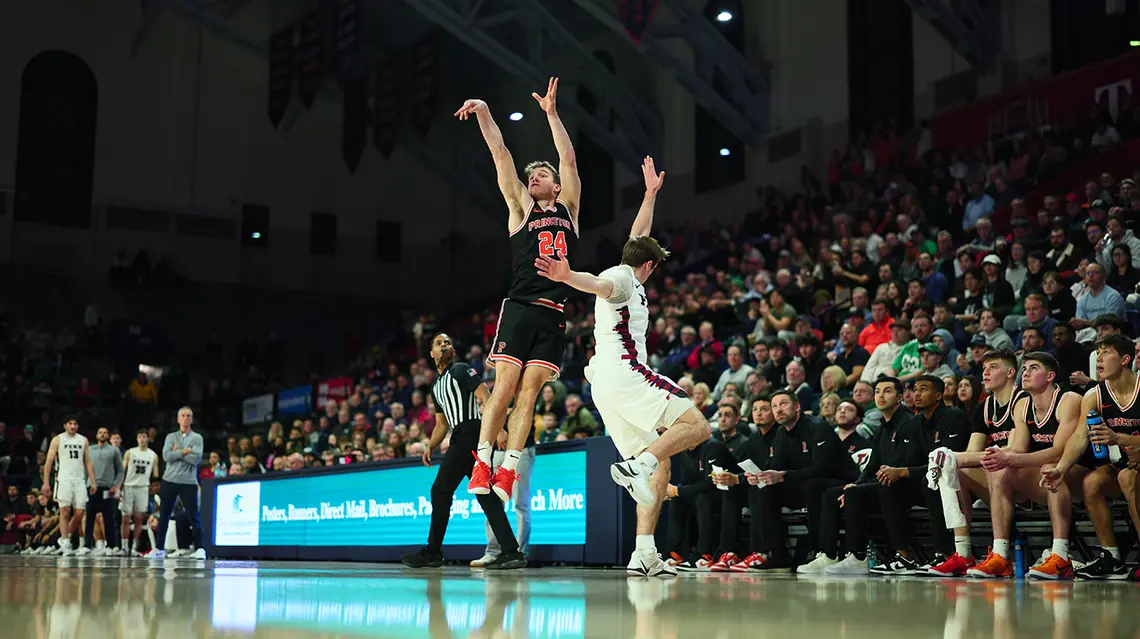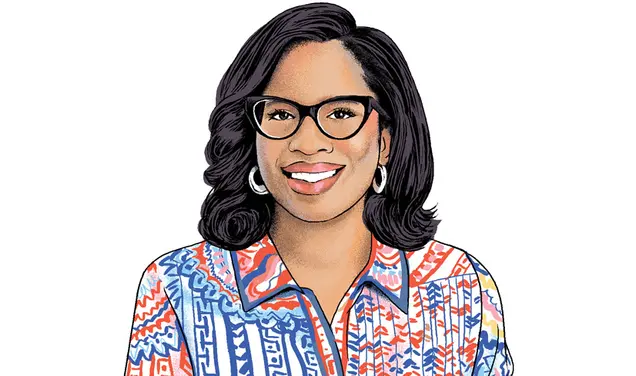Sharpshooter Blake Peters ’25 Looks To Make the Most of Remaining Moments

Dubbed “the most interesting man in March Madness” during Princeton’s Sweet 16 run two years ago, Blake Peters ’25 is getting ready to hang up his jersey after more than 15 years on the court.
The senior shooter speaks Mandarin, and for years has said that he wants to be secretary of state. Princeton was always a dream school of his, and he said he appreciates the academic opportunities that the University provides.
“I get teased a lot,” Peters said. “I do enjoy school … . I don’t think you come to Princeton and not like school. I just like to learn.”
Peters ranks seventh all-time in made 3-pointers for Princeton men’s basketball with 200, but he doesn’t focus on the individual accomplishments of his college career.
“I’ve never been about individual accolades,” Peters told PAW. “I’ve always been concerned about putting the banners up and seeing my teams be a part of bigger moments than that.”
After winning the Ivy League regular season title in each of Peters’ first three years, it’s been an uphill battle for the Tigers this season, finishing with an 8-6 record and narrowly qualifying for the Ivy League Tournament, where they will play Yale on Saturday (11 a.m., ESPNU).
Peters was an integral part of the Tigers’ fight to reach the tournament, most recently putting up 18 points in Princeton’s victory over Columbia Feb. 28 and 25 points — including seven 3-pointers — in a senior night win over Penn March 8.
Peters said his role at the beginning of his college career — playing limited minutes — didn’t sit well with him at first. After conversations with coaches, Peters said, he “came to understand that it was necessary for my growth as a player, to get that experience and almost to be humbled in a way.”
Since his freshman year, Peters has come a long way — starring in the Tigers’ NCAA Tournament wins in 2023, he made it into the “One Shining Moment” montage with his infectious joy as he told ESPN that “anything is possible” after the Tigers took down Missouri to reach the Sweet 16.
Peters was also instrumental in revitalizing Princeton’s Jewish Athlete Collective. Along with several others on campus, Peters has contributed to creating a community on campus for Jewish student athletes.
“And so especially given everything that’s been happening in the world over the past two years, we thought it was important to create that because that’s something that will last beyond our time here,” he said.
In his senior thesis — which Peters told PAW is almost done — he’s working with Gene Grossman, a basketball faculty fellow, to study bilateral trade among BRICS countries (Brazil, Russia, India, China, South Africa).
“It’s a fairly timely thesis,” he said, “because so much of the past 15 years has been about this transformation in world order, going from [an] American-led system after the Cold War … to now, these emerging markets and these emerging economies starting to assert their voice in global affairs.”
Peters has long talked about his desire to work in the public sector. But “given the current climate,” he said he’ll probably wait a few years before jumping in.
“I’ve really come to understand that this place is special, like it has completely changed the trajectory of my life,” Peters said.
Peters will have at least one more special moment on the basketball court Saturday. Princeton has already lost to Yale twice this season, but in a press conference after the regular season finale over Penn, Peters said the team is “fully locked in and ready.”
“I know that I don’t have many moments left, and so I’m just trying to make the most of it.”










No responses yet